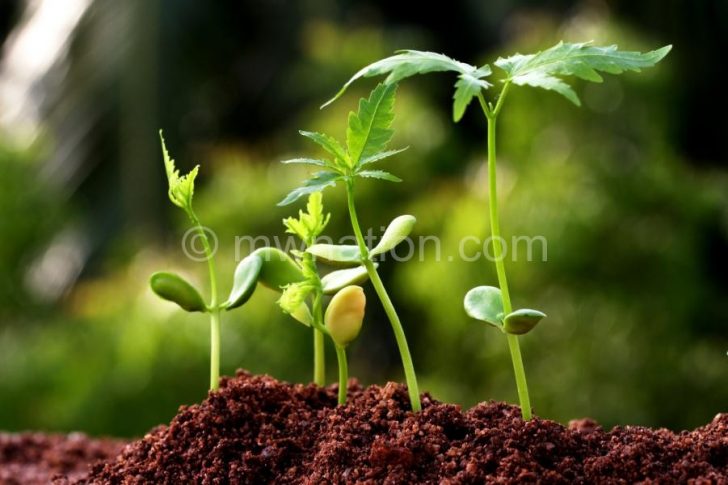Biotechnology to ease food challenges-NCST
Malawi needs to find ways of increasing its agricultural productivity such as the use of biotechnology to ensure food sufficiency in the growing population, the National Commission for Science and Technology (NCST) has said.
Speaking when he opened a two day media training on biotechnology and biosafety communication, NCST Director General Anthony Muyepa Phiri said the country’s land is becoming too small for the ever growing population and science technology needs to be applied to make sure the land produces enough.
Biotechnology is the use of biological processes, organisms or systems to manufacture products intended to improve human life.
Through biotechnology, Genetically Modified Organisms (GMO) crops are produced by importing genes from other products.
Muyepa Phiri said through biotechnology, varieties of crops that are resistant to pests, diseases and drought are produced thereby ensuring maximum productivity.
“Thousands of Malawians will continue to be scourged by hunger if we do not apply new technologies to ensure food sufficiency. Varieties that are produced through biotechnology have also the potential to mature faster and produce more which is what we need as a country now,” said Muyepa Phiri.
He said increased productivity through production of quality crops can also increase income for farmers and the country’s Gross Domestic Product (GDP).
Currently Malawi is conducting research on varieties of crops such as cowpea, banana and cotton through Chancellor College, Lilongwe University of Agriculture and Natural Resources (Luanar) and Bvumbwe Research Station.
Making her presentation, Bibiana Kipkorir from the International Service for the Acquisition of Agri-Biotech Applications (ASAAA) Africentre in Kenya, bemoaned the increase of negative information on biotechnology in the media and expressed the need for journalists to be equipped with necessary information to transmit to the masses.
“There is need to bridge the gap between journalists and scientists and avoid amplifying confusion to the general public on the use of biotechnology products.
Kipkorir further said complex science information needs to be simplified for easy understanding by journalists.
She said lack of understanding on biotechnology has also resulted into journalists failing to report on some research being conducted in their countries.
NCST was established by an act of parliament in 2003 but started operating in 2009 to give advice on science and technology.






The European Academies Science Advisory Council 2013 report-Planting the Future is an excellent resource. Free on-line.
That report carries a disclaimer that says it reflects the views of the authors and not the European Academies of Science.
Misleading Wager is at it again. Look at the authors in this report.
Reidunn Aalen – has a patent on plant gene for use in genetic engineering. http(COLON)//www.freshpatents(DOT)com/Reidunn-Aalen-Oslo-invdira(DOT)php
Ervin Balazs – “former founding general director of the Agricultural Biotechnology Center Gödöll,, lead a unit on molecular virology and genetic engineering of crops”
Ralph Bock – “Director of the Institute of Biochemistry and Biotechnology of Plants”,
Ian Crute : “has had a 40 year career in crop research”
Michel Delseny : Laboratoire Génome et Développement des Plantes
Torbjörn Fagerström : President of the Swedish University of Agricultural Sciences
Evert Jacobsen : “WU Plant Sciences. Subdivision, Laboratory of Plant Breeding.”
Ivan Kreft : “agronomskih znanosti, redni profesor genetike na Biotehniški fakulteti”
Birger Moller : “Center for Synthetic Biology”
Ewen Mullins : “15 years experience in US & Ireland in Plant Biotechnology.”
Enrico Porceddu “docente presso la facolta’ di Agraria dell’Universita’ di Viterbo.”
, etc.
So you referenced a biased report written by a bunch of people who have a conflict of interest since they are involved in genetic engineering of plants and virtually no health background. You would be better off referencing a report by a bunch of plumbers since they are just as unqualified and would be less biased.
very good to know – will share widely.
The narrower our food system the more difficult it will be to get the 50+ nutrients we need from our food and water every day. This is the crux of our problem and it is destroying the health of our people, economy and environment. We need a mindset change for diversity and sustainability and then to apply the new mindset to our systems and behaviours. There are thousands of Malawian species that are being abused, time to respect them and use them sustainably for food, medicines, fuel, fibres, building, soil fertility, etc.
The approaches of foreign species, chemicals and hybrids and genetic engineering only look at symptoms and avoid addressing the problem, so the problem remains and festers. Time to address our problems and stop avoiding them.